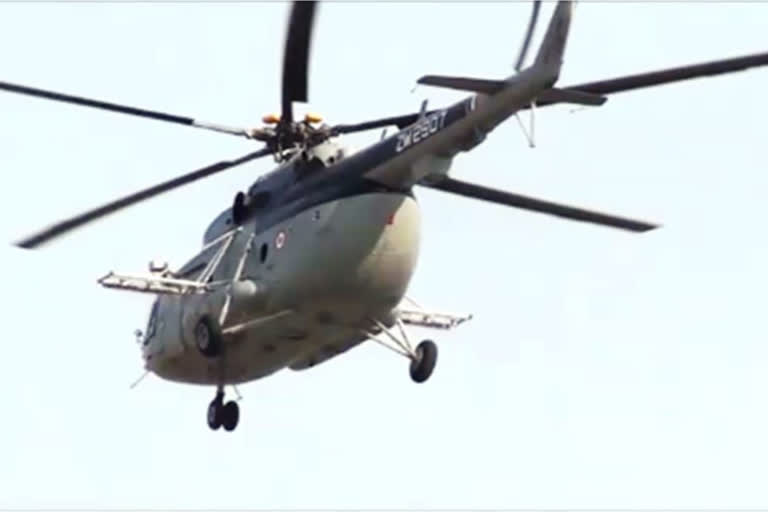Jaipur: In an attempt to tackle the locust attack, which at present poses great threat for the kharif crops, Indian Air Force has designed three Mi-17 helicopters for spraying atomised pesticide to stymie the locust breeding. The development comes after Government of India signed a contract with a UK-based company micron to modify Mi-17 helicopters but due to the pandemic, the company could not complete the contract.
The IAF base Repair Deport located at Chandigarh took the challenge of indigenously designing and developing an Airborne Locust Control System(ALCS) for Mi-17 helicopters.
The airborne trial of Mi-17 helicopters was successfully carried out with the help of test pilots and engineers and the second round is scheduled to take place in Jodhpur.
Read: WATCH: Drones deployed to spray insecticides on locusts' swarms in Rajasthan
The newly-designed Mi-17 helicopters have the capacity to spray for nearly 40 minutes in the infected region, covering approximately 750 hectares of area in one go. The internal auxiliary tanks of 800 litres capacity has been fit inside these helicopters for spraying and nozzles have been fit behind the pilot seats.
The spraying pesticide would be filled in appropriate concentration into the nozzles by using electrical pumps and compressed air. The excepted cost to complete the process of spraying pesticides with Mi-17 helicopters is estimated to be Rs 1.5 crore.
Sources said that a normal helicopter is capable of spraying 250 litres of pesticides and can cover only 50 hectares of area in one mission. It may be recalled that the Food and Agricultural Organisation (FAO) issued high alert for India on invasion of locust swarms from neighbouring Pakistan, with Rajasthan being worst-hit.



